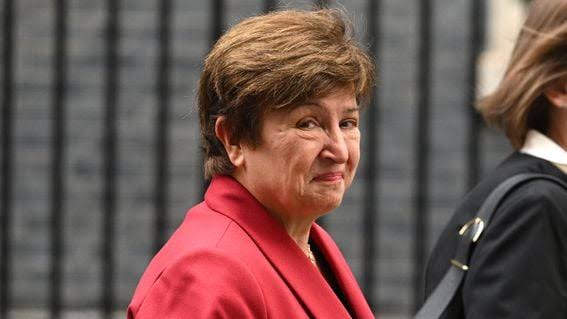
Georgieva Advocates CBDCs, AI in FinTech Festival Opening
The Managing Director of the International Monetary Fund (IMF), Kristalina Georgieva, delivered the opening remarks at the Singapore FinTech Festival.
She urged the public sector to “continue preparing for the future implementation” of central bank digital currencies (CBDCs) and associated payment platforms.
Georgieva has expressed optimism regarding the worldwide adoption of CBDCs; however, she has dissected this optimism by asserting that “we have yet to reach the land” and that a substantial amount of ambiguity remains:
“Adoption of CBDCs is nowhere close. But about 60 percent of countries are exploring them in some form today.”
CBDCs have the potential to supplant currency, lend resilience to developed economies, and expand financial inclusion in underbanked communities, according to the executive team.
CBDCs, which Georgieva deems a “secure and inexpensive substitute” for “private money,” can coexist harmoniously with this financial system.
Furthermore, Georgieva underscored the importance of technological infrastructure in the context of CBDC initiatives, the safeguarding of personal data, and the potential contribution of artificial intelligence (AI) to advancing domestic digital currencies.
She emphasized in particular the importance of assistance for cross-border payments:
“To the extent CBDCs are deployed, they must be built to facilitate cross-border payments, which are at present expensive, slow, and available to few. Again, we must start this work today so we don’t have to backpedal tomorrow.”
The CBDC virtual manual was introduced by the director of the International Monetary Fund (IMF), who also emphasized the Bank for International Settlements (BIS) participation in the public sector’s digital currency experiments.
Recently, the International Monetary Fund (IMF) has been extremely occupied with investigating fundamental crypto regulations.
It published a proposal for a crypto-risk assessment matrix, or C-RAM, on September 29. Governments could utilize the C-RAM to identify indicators and triggers of potential industry hazards.
The “G20 Finance Ministers and Central Bank Governors Communique” of October granted unanimous approval to the “Synthesis document,” which the International Monetary Fund (IMF) and the Bank for International Settlements (BIS) had collaboratively developed.
